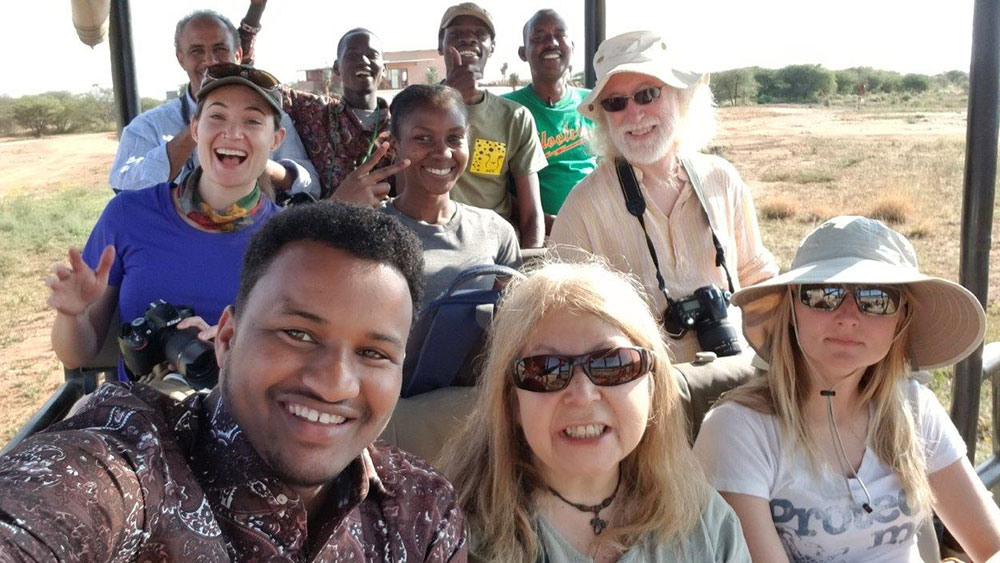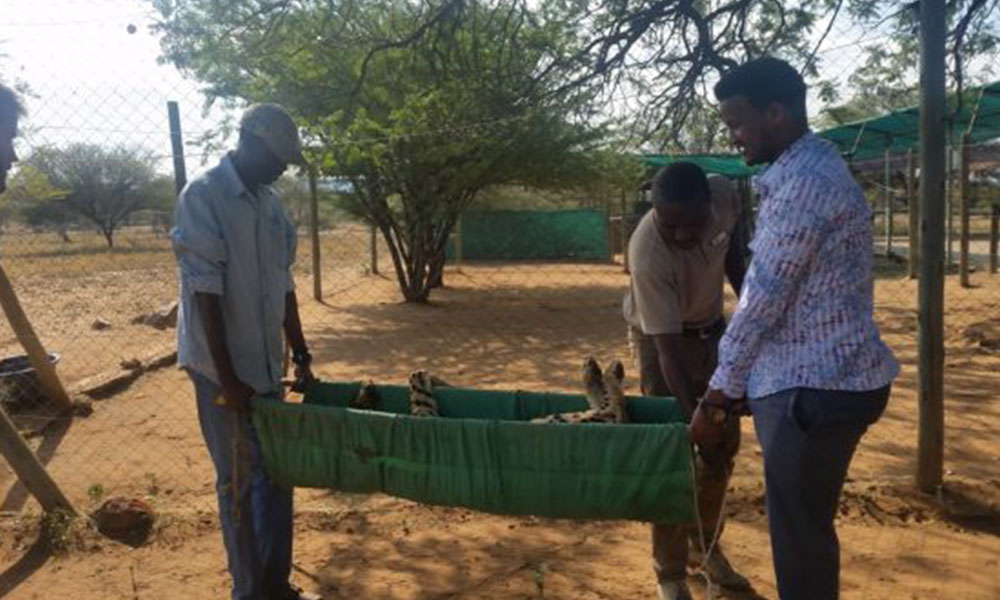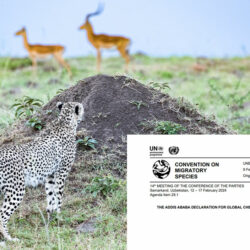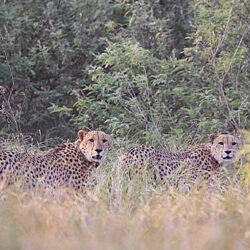Somaliland Wildlife Officials Visit CCF
-

- by Patricia Tricorache January 31, 2018

The first two weeks of this year have seen a flurry of activity for us at CCF. From January 6 to 8, we welcomed 44 trainees from 13 African countries in Windhoek for an immersive learning experience designed to enhance their professional skills. They were later joined by over 150 more scientists and practitioners for the 3-day Pathways Africa Conference, where they explored human dimensions science and its applications in fish and wildlife conservation. Read about it here.
Once we said farewell to many of the trainees and conference participants, we returned to CCF near Otjiwarongo for a post-training especially designed for a Namibian ecologist, four representatives from ACK (Action for Cheetahs in Kenya), and two wildlife officials from the Somaliland Ministry of Environment and Rural Development: Ahmed and Abdi.
The importance of having participants from Somaliland spend these 12 days with us cannot be stressed enough. Thanks to the support of Colorado State University and the Murulle Foundation, these two government officials, who work in a country that has not been recognized by the international community and where trafficking of cheetah cubs for the illegal pet trade is a major concern, were able to see firsthand the benefits of approaching conservation in a holistic manner.
The post-training program, which included presentations and practicals, was carefully designed so that they could witness all that they learned during the sessions in Windhoek, as well as many aspects specific to cheetahs. The group learned about Namibia’s conservancy system, which has proven to be so crucial to achieve Namibia’s status as a conservation model in Africa, where government, communities and NGOs work together to achieve sustainability. As such, CCF’s work can only succeed if everything we learn through scientific research is made available to the authorities and communities that share the land with wildlife.

Our international trainees spent time at CCF’s Model Farm, learning about our world-renowned Livestock Guarding Dog Programme, which along with well-managed herds, has proven to significantly reduce livestock losses. They learned about the usefulness of breeding/calving seasons, kraaling, hoof trimming, and some basic concepts of veterinary care for proper livestock health and management.
A visit through CCF’s Genetics lab provided them with an overview of the importance of research into cheetah genetics, both to understand the species through their DNA, and to eventually build a broad enough DNA database that could assist enforcement officials with cheetah trafficking investigations. This was preceded by a demonstration of how Levi, CCF’s cheetah scat detection dog, searches and signals when successfully finding cheetah scat in the bush. Additionally, they learned how “reading” hair found in cheetah scat is a valuable tool in human-wildlife conflict resolution. Through this process, we are able to determine what a cheetah has been eating, and thus help farmers who might have a real or perceived cheetah problem. They also participated in predator kill ID exercises to assist in cases of livestock predation; another very important tool in human-wildlife conflict resolution.
Cheetah health and husbandry are a crucial part of the work we do at CCF given the 30+ cats which must remain in captivity under our care, either for the short or long-term. This is particularly important if we are to train people in Somaliland to look after confiscated cheetah cubs. As such, our trainees joined the CCF Cheetah Husbandry team to learn about cheetah behavior and husbandry, including the importance of a proper diet and enclosure maintenance, from cleaning to checking the integrity of the fences. Additionally, our veterinary team demonstrated a full cheetah workup as one of CCF’s resident cheetahs, Smart Man, required some dental work.
Namibia’s bio-diversity is world famous due to its intelligent approach to conservation. Ahmed and Abdi, coming from a country where wildlife has been heavily depleted due to factors such as poaching, overgrazing and climate change, were impressed by the amount of wildlife living free in Namibia. Our ecology team explained to them the importance of monitoring wildlife through censusing techniques or tracking, as well as game counts. They are now taking with them a better understanding of the importance of healthy ecosystems, and why they are beneficial both for people and wildlife.
Related Reading
-
February 19, 2024
The Addis Ababa Declaration for Global Cheetah Conservation -
June 2, 2023
Project Cheetah Update




